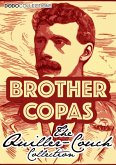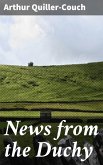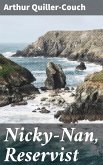In "Brother Copas," Arthur Quiller-Couch weaves a rich tapestry of human emotion and societal critique, set against the backdrop of early 20th-century Cornwall. The narrative unfolds through the eyes of its protagonist, an enigmatic clergyman, as he navigates the complexities of faith, morality, and interpersonal relationships. Quiller-Couch employs a masterful blend of lyrical prose and vivid imagery, characteristic of the Cornish literary tradition, while engaging with themes of redemption and the struggle between duty and desire. The novel's exploration of the dualities within human nature invites readers to reflect on the intricacies of personal conflict and community dynamics within a rapidly changing social landscape. Quiller-Couch, a prominent literary figure and critic, drew from his extensive knowledge of English literature and folklore. His experiences as a Cornish native permeate the novel, infusing it with rich local color and authenticity. An advocate for the value of storytelling, Quiller-Couch's commitment to exploring the moral dilemmas faced by his characters reveals his insight into human nature, which is likely influenced by his scholarly pursuits and deep sense of place. "Brother Copas" is a compelling read for those interested in character-driven narratives that probe the depths of morality and social obligation. Quiller-Couch's engaging style and profound themes make the novel a valuable addition to the canon of early 20th-century literature, and its relevance endures, inviting contemporary readers to ponder their own moral landscapes.
Dieser Download kann aus rechtlichen Gründen nur mit Rechnungsadresse in A, B, BG, CY, CZ, D, DK, EW, E, FIN, F, GR, H, IRL, I, LT, L, LR, M, NL, PL, P, R, S, SLO, SK ausgeliefert werden.









